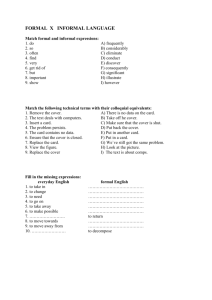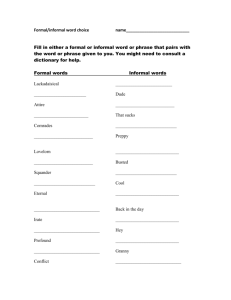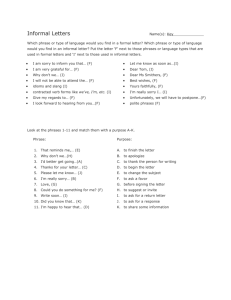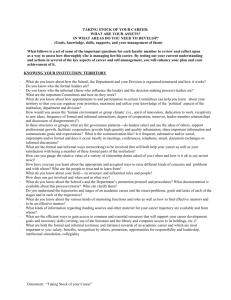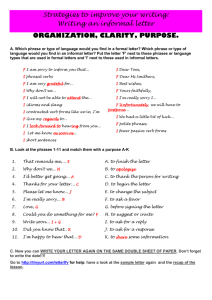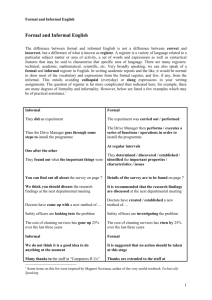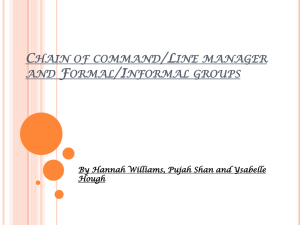Useful language for formal letters requesting and/or giving information
advertisement
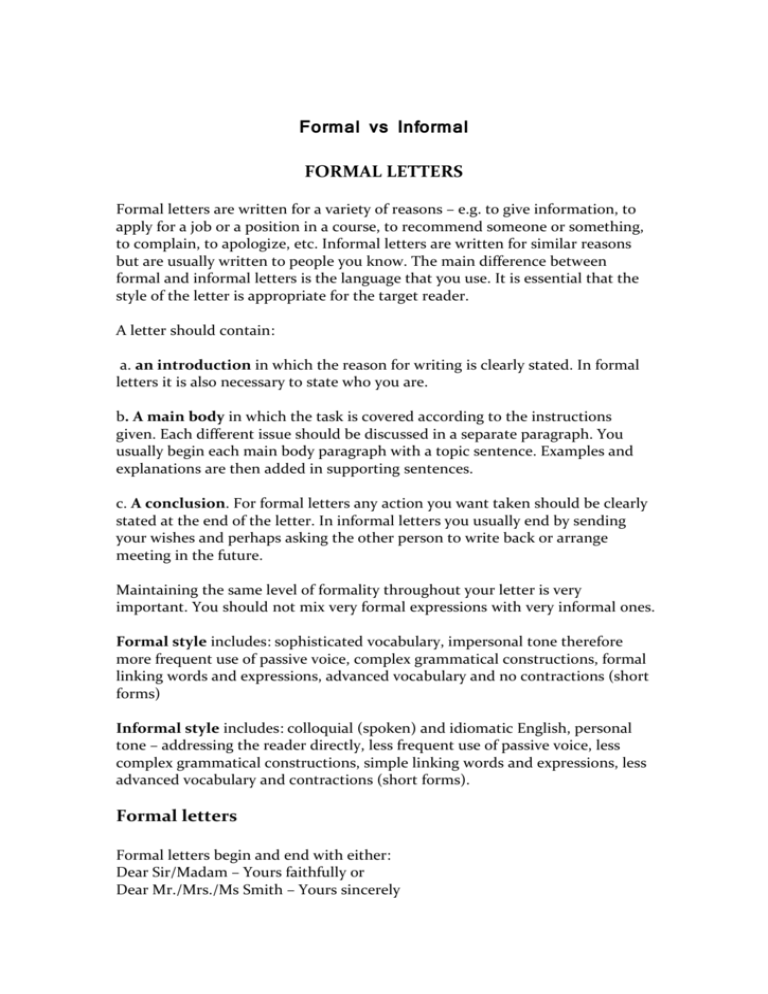
Formal vs Informal FORMAL LETTERS Formal letters are written for a variety of reasons – e.g. to give information, to apply for a job or a position in a course, to recommend someone or something, to complain, to apologize, etc. Informal letters are written for similar reasons but are usually written to people you know. The main difference between formal and informal letters is the language that you use. It is essential that the style of the letter is appropriate for the target reader. A letter should contain: a. an introduction in which the reason for writing is clearly stated. In formal letters it is also necessary to state who you are. b. A main body in which the task is covered according to the instructions given. Each different issue should be discussed in a separate paragraph. You usually begin each main body paragraph with a topic sentence. Examples and explanations are then added in supporting sentences. c. A conclusion. For formal letters any action you want taken should be clearly stated at the end of the letter. In informal letters you usually end by sending your wishes and perhaps asking the other person to write back or arrange meeting in the future. Maintaining the same level of formality throughout your letter is very important. You should not mix very formal expressions with very informal ones. Formal style includes: sophisticated vocabulary, impersonal tone therefore more frequent use of passive voice, complex grammatical constructions, formal linking words and expressions, advanced vocabulary and no contractions (short forms) Informal style includes: colloquial (spoken) and idiomatic English, personal tone – addressing the reader directly, less frequent use of passive voice, less complex grammatical constructions, simple linking words and expressions, less advanced vocabulary and contractions (short forms). Formal letters Formal letters begin and end with either: Dear Sir/Madam – Yours faithfully or Dear Mr./Mrs./Ms Smith – Yours sincerely All formal letters begin with the reason for writing. e.g. I am writing to request/inform you/ complain about/apologize for/apply for etc. In addition, you can include one or more of the following: o Who you are – e.g. I am writing on behalf of my English class… o A reference to sth you have seen or read – e.g. I am writing in response to your article in last Tuesday’s issue of Education News… o Details of time, place, people spoken to, etc. – e.g. …. while I was attending the seminars for students on 4th May. Depending on the reason for writing, letters can end with one of the following: o A reassurance o A reference to future action o An expression of gratitude etc. Informal letters Informal letters usually begin and end with first names in the following way: Dear John – Lots of love, Susan Dear Margaret – take care and write soon, Bill. Informal letters can begin with an informal greeting: e.g. How are you doing? They can also begin with the reason for writing. e.g. I thought I would write to let you know about this fantastic new course that’s being offered. The closing comment depends on the content of the letter: e.g. Write soon and let me know what you think… etc. Useful language for formal letters requesting and/or giving information. Opening remarks: I am writing to inquire about I am writing in connection with I am writing in reply to your letter asking for information about I am writing to inform you about I am writing in response to your letter/advertisement… Introduce 1st request: Could you possibly send I would be grateful if you could Would it be possible for you to tell me/ to send me I would appreciate some information about I would appreciate it If you sent me…/ If you could tell me… To introduce further requests: Could you also please send me Another matter I need information on is I would also like some information on Closing remarks: I look forward to receiving a reply I look forward to hearing from you I look forward to hearing from you at your earliest convenience I would appreciate it if you could inform me as soon as possible Please do not hesitate to contact me (again) if you require any further information Thank you in advance for your assistance
